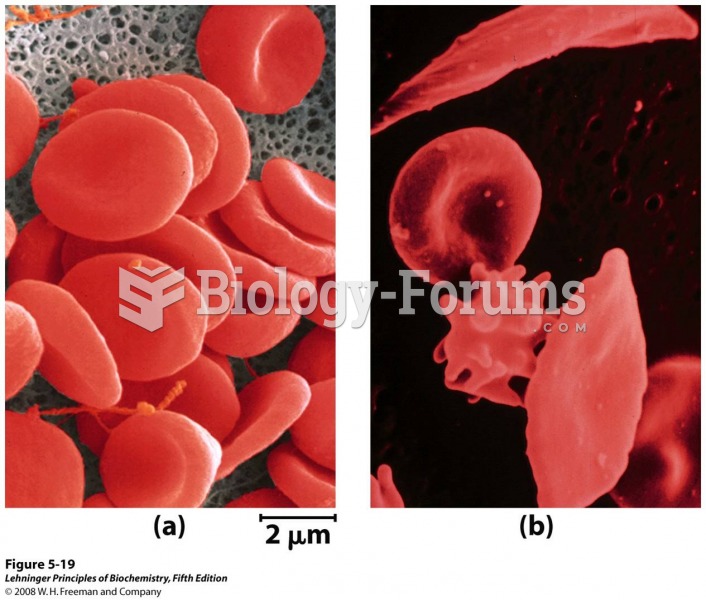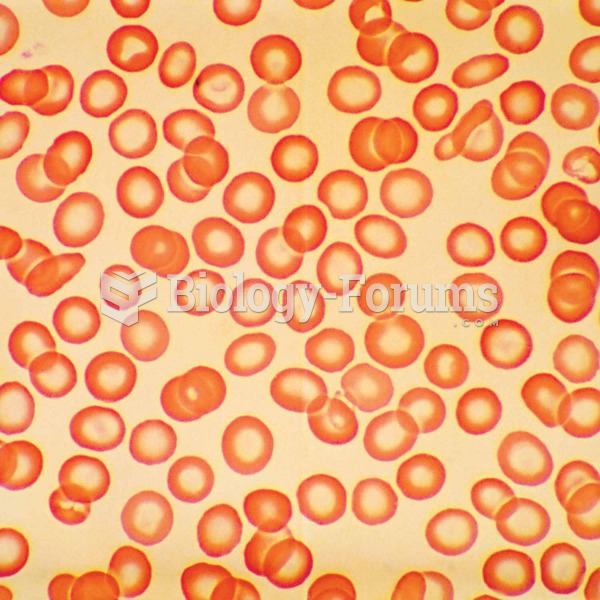|
|
|
Green tea is able to stop the scent of garlic or onion from causing bad breath.
After a vasectomy, it takes about 12 ejaculations to clear out sperm that were already beyond the blocked area.
IgA antibodies protect body surfaces exposed to outside foreign substances. IgG antibodies are found in all body fluids. IgM antibodies are the first type of antibody made in response to an infection. IgE antibody levels are often high in people with allergies. IgD antibodies are found in tissues lining the abdomen and chest.
Historic treatments for rheumatoid arthritis have included gold salts, acupuncture, a diet consisting of apples or rhubarb, nutmeg, nettles, bee venom, bracelets made of copper, prayer, rest, tooth extractions, fasting, honey, vitamins, insulin, snow collected on Christmas, magnets, and electric convulsion therapy.
According to the FDA, adverse drug events harmed or killed approximately 1,200,000 people in the United States in the year 2015.







